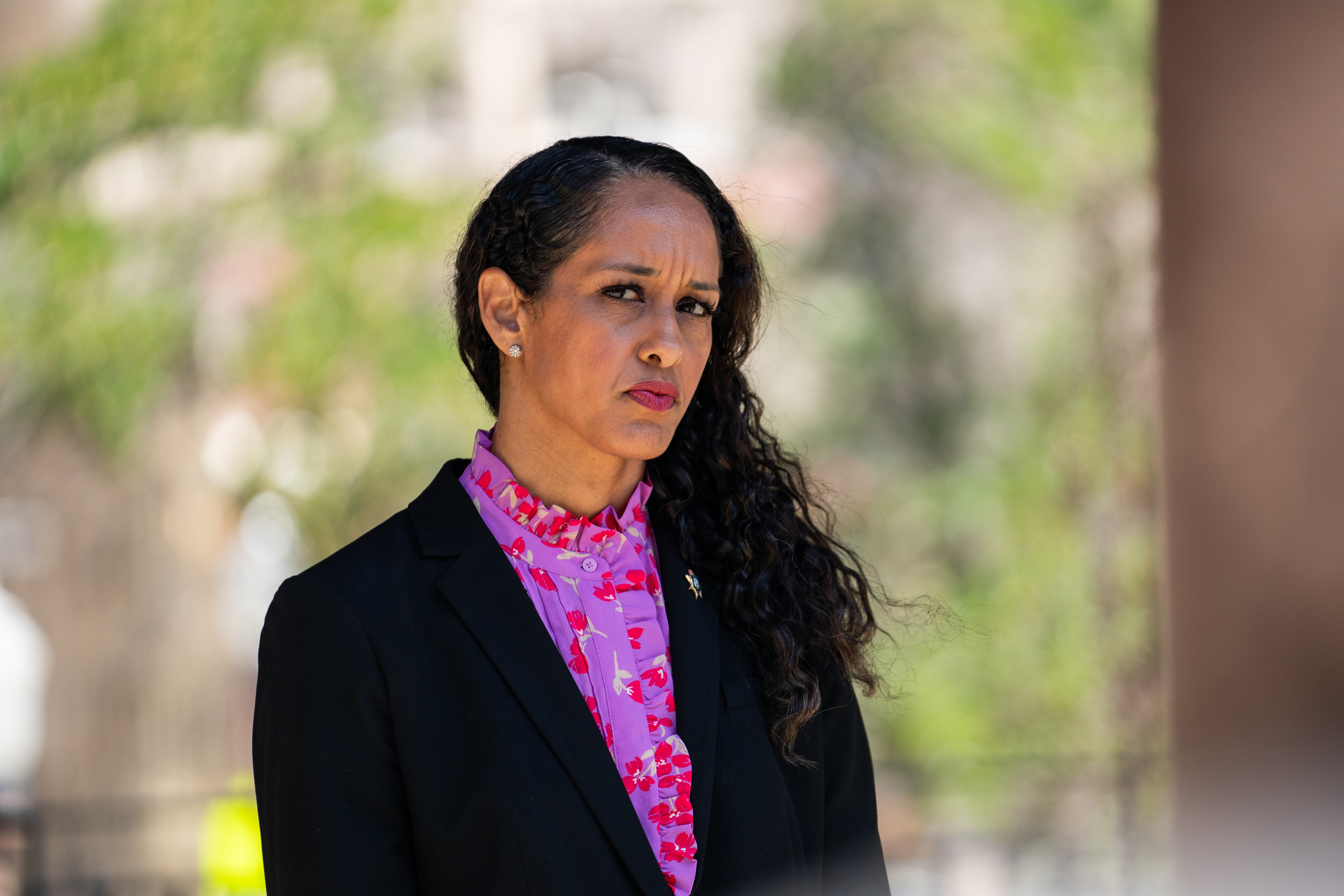In February, San Francisco District Attorney Brooke Jenkins’ office said she planned to dismiss a controversial manslaughter case against a police officer who fatally shot a man. One of the main reasons she gave was that the investigator who signed the arrest warrant was allegedly pressured for political reasons by the previous administration.
That longtime DA investigator, Lt. Jack Friedman, now says he was never coerced to sign the arrest warrant for Officer Christopher Samayoa, who shot and killed Keita O’Neil on Dec. 1, 2017. Rather, he says he was used as a scapegoat for the Jenkins administration’s vendetta against former DA Chesa Boudin.
The statements made by Jenkins about Friedman’s handling of the arrest warrant were not true, according to the claim filed on behalf of Friedman, and “they wrongly claimed that former District Attorney Boudin had decided to prosecute Samayoa for improper political reasons.”
Jenkins has argued that prosecutors should have told their counterparts on the defense about the internal dispute over the strength of the case.
But Friedman’s legal filing claims that Jenkins and other lawyers in her office misconstrued his action in the case, which led to him being accused of lying and has brought other negative emotional and financial impacts.
Friedman was terminated in early May for allegedly lying during Jenkins’ investigation into the case’s handling, according to the claim.
Friedman’s claim is required before filing a civil suit.
In 2020, Boudin’s administration charged Samayoa with manslaughter for killing O’Neil, who led police on a chase in a stolen truck.
The case against Samayoa became a bellwether of police accountability, marking the first time San Francisco charged an officer for killing someone while on duty.
When Jenkins was appointed to office in July 2022, she promised to fairly review the Samayoa prosecution, along with two other police shooting cases.
According to Friedman’s claim, Jenkins always planned to drop the Samayoa case.
“Soon after her appointment, Brooke Jenkins began efforts to reverse former District Attorney Boudin’s actions to hold police officers accountable for unlawful violence against members of the public,” the claim asserts.
Eventually, she dismissed the case—and put much of the onus on Friedman.
Jenkins argued in a letter to the California Attorney General’s Office that she could not in good conscience pursue the case, in part because she said Friedman was pressured to sign the arrest warrant after other investigators refused.
“Friedman told me he agreed to draft the warrant, but that he was not sure if he would sign it due to concerns about whether sufficient probable cause existed for the issuance of the warrant,” Jenkins wrote of a meeting she had with him soon after taking office. “Friedman was crying during this portion of the discussion, so I tried to console him and told him I could understand the pressure he was under and the tough position in which he found himself.”
She also wrote that another investigator who had misgivings about the matter told the prosecutor in the case, Darby Williams, that Friedman was troubled over his decision to write and sign the warrant.
But at the time of the case’s dismissal, Boudin told The Standard that Jenkins’ decision was itself politically motivated and aimed to scapegoat him for an unpopular decision. Boudin said dropping the case shows his successor does not plan to hold police officers to the same standard as everyone else.
Julia Fox, who represented Samayoa, said she has confidence in the veracity of Jenkins’ statements about the case.
The DA declined to comment on the Friedman claim itself since the matter is being handled by the City Attorney’s Office. But in regards to the Samayoa case, DA spokesperson Randy Quezada said Jenkins dropped the prosecution because it lacked merit.
“The Samayoa case was dismissed because it was not provable and we had an ethical responsibility to dismiss this case, as articulated in our motion,” he wrote in an email. “The Attorney General found in their separate and independent evaluation of the case that the charges against Officer Samayoa cannot be proved beyond a reasonable doubt, and that the District Attorney’s decision to dismiss was not an abuse of discretion.”
Editor’s note: This story has been updated to include a statement from the District Attorney’s Office.
